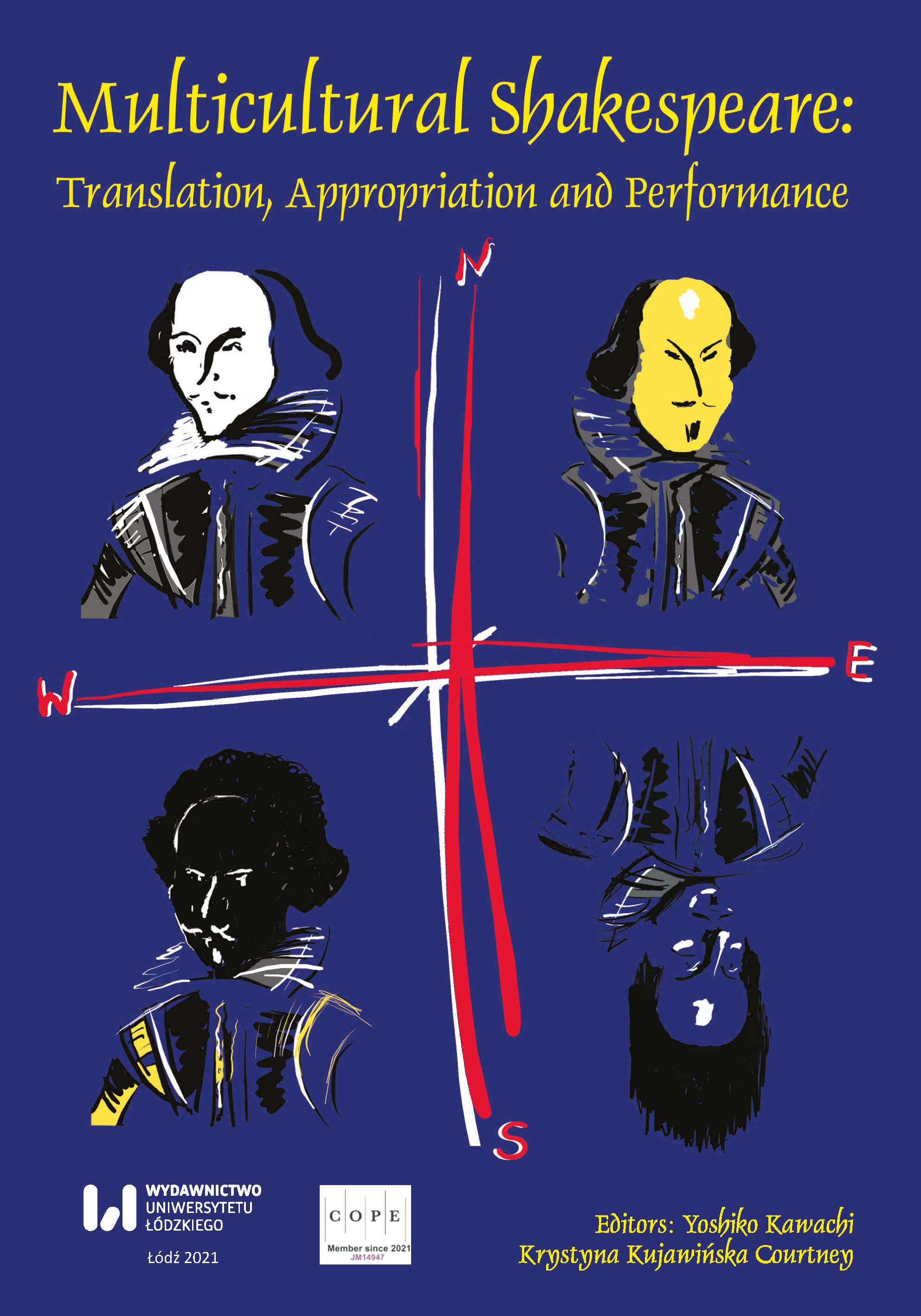Four-Character Idioms and the Rhetoric of Japanese Shakespeare Translation
DOI:
https://doi.org/10.18778/2083-8530.23.02Słowa kluczowe:
Japanese writing system, yoji jukugo, Matsuoka Kazuko, idiomatic expression, visualization, classical rhetoric, malapropismAbstrakt
Yoji jukugo are idioms comprised of four characters (kanji) that can be used to enhance the textuality of a Japanese Shakespeare translation, whether in response to Shakespeare’s rhetoric or as compensation for the tendency of translation to be carried out at a lower textual register than the source. This article examines their use in two translations each of Julius Caesar by Matsuoka Kazuko (2014) and Fukuda Tsuneari (1960) and of The Merry Wives of Windsor by Matsuoka (2001) and Odashima Yūshi (1983); in both cases Matsuoka uses significantly more yoji jukugo than her predecessors. In the Julius Caesar translations their usage is noticeable in the set speeches by Antony and Brutus in 3.2, and commonly denote baseness or barbarity. In the Merry Wives translations they commonly denote dissolute behaviour, often for comic effect, and can even be used malapropistically in the target language.
Pobrania
Bibliografia
Akishima Yuriko. Ninagawa Yukio to Sheikusupia (Ninagawa’s Shakespeare). Tokyo: Kadokawa Shoten, 2015.
Google Scholar
Betsuyaku Minoru. Sami umi yoji jukugo (Four-character idioms everywhere one looks). Tokyo: Taishūkan Shoten, 2005.
Google Scholar
Fukuda Tsuneari, trans. Juriasu Shīzā (Julius Caesar). Tokyo: Shinchōsha, 1968. 1st ed. 1960.
Google Scholar
Matsuoka Kazuko, trans. Juriasu Shīzā (Julius Caesar). Tokyo: Chikuma Shobō, 2014.
Google Scholar
Matsuoka Kazuko, trans. Uinzā no yōkina nyōbōtachi (The Merry Wives of Windsor). Tokyo: Chikuma Shobō, 2001.
Google Scholar
Odashima Yūshi, trans. Uinzā no yōkina nyōbōtachi (The Merry Wives of Windsor). Tokyo: Hakusui Books, 1983.
Google Scholar
Palfrey, Simon. Doing Shakespeare. London: Methuen Drama, 2011.
Google Scholar
DOI: https://doi.org/10.5040/9781408160466
Shakespeare, William. Julius Caesar. Ed. David Daniell. London: Thomson Learning, 1998.
Google Scholar
Shakespeare, William. The Merry Wives of Windsor. Ed. Giorgio Melchiori. London: Thomson Learning, 2000.
Google Scholar
Suematsu Michiko. ‘Verbal and visual representations in modern Japanese Shakespeare productions’. In The Oxford Handbook of Shakespeare and Performance. Ed. James C. Bulman, Oxford: Oxford University Press, 2017. 585-97.
Google Scholar
DOI: https://doi.org/10.1093/oxfordhb/9780199687169.013.32
Takashima Toshio. Chotto hen da zo yoji jukugo okotoba desu ga … (Four-character idioms are a bit strange but they are real words). Tokyo: Bungei Shunjū, 2009.
Google Scholar
Tomasi, Massimiliano. Rhetoric in Modern Japan: Western Influences on the Development of Narrative and Oratorical Style. Honolulu, HI: University of Hawai‘i Press, 2004.
Google Scholar
DOI: https://doi.org/10.1515/9780824840570
Toury, Gideon. Descriptive Translation Studies—and Beyond. Amsterdam: John Benjamins, 2012. 1st ed. 1995.
Google Scholar
DOI: https://doi.org/10.1075/btl.4
Pobrania
Opublikowane
Jak cytować
Numer
Dział
Licencja

Utwór dostępny jest na licencji Creative Commons Uznanie autorstwa – Użycie niekomercyjne – Bez utworów zależnych 4.0 Międzynarodowe.












